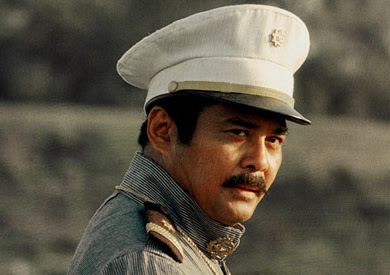A combination of California (and U.S.) history, lesbian confessional, geography lesson and meditation on the human condition -- who we are and what we want -- THE ROYAL ROAD, from documentarian Jenni Olson, offers a good deal of pleasure via its unusual tone: quiet, inquiring and a little sad. The visuals, too, are equally quiet, staid & beautifully composed via a stationary camera before which passes a parade of boats, cars, water, birds, but no people.
What do these two themes -- personal love and national conquest -- have in common? Perhaps the kind of hypocrisy that would deliberately choose would-be partners who are by their very nature (maybe straight, certainly married) unavailable, and deliberately refuse to see or understand a history in which a country practices war and genocide in order to expand its borders. (God knows, they never taught us kids any of that in my California elementary school history class. Maybe they do now.)
Whatever, Olson's honesty about both subjects is quietly bracing, and when at last she adds the famous Alfred Hitchcock movie, Vertigo, to the mix, the results are even more invigorating. Her final statement (or one of them) about what both she Hitch managed to reveal via their films is smart, funny and as engaging as all that has gone before.
Although much that we see and hear will probably be obvious to history buffs (and therapists who deal with folk who fail at relationships), I did learn some new things from the film: Did you know that both Abe Lincoln and Ulysses S. Grant were opposed to the Mexican-American War? And while I thoroughly love Vertigo, I had never made the connection that Olson makes about how the choice of the name of one of Kim Novak's characters, Madeleine, might be a nod to Proust. I also loved her idea that "the re-romanticizing of California's Missionary Era," occurred just as the state's tourism was burgeoning.
There is even a short side trip into the pros and cons of nostalgia, with the help of Tony Kushner. One might have wished for a bit more variation and energy in Ms Olson's narrative voice; on the other hand, it makes the film more personal because it's she who is speaking. All in all, if you're of a mind and in the mood for some quiet movie contemplation, you could do well spending 65 minutes with this lovely film.
From Wolfe Video, the documentary hits the street this coming Tuesday, September 6 -- for purchase and/or rental.























